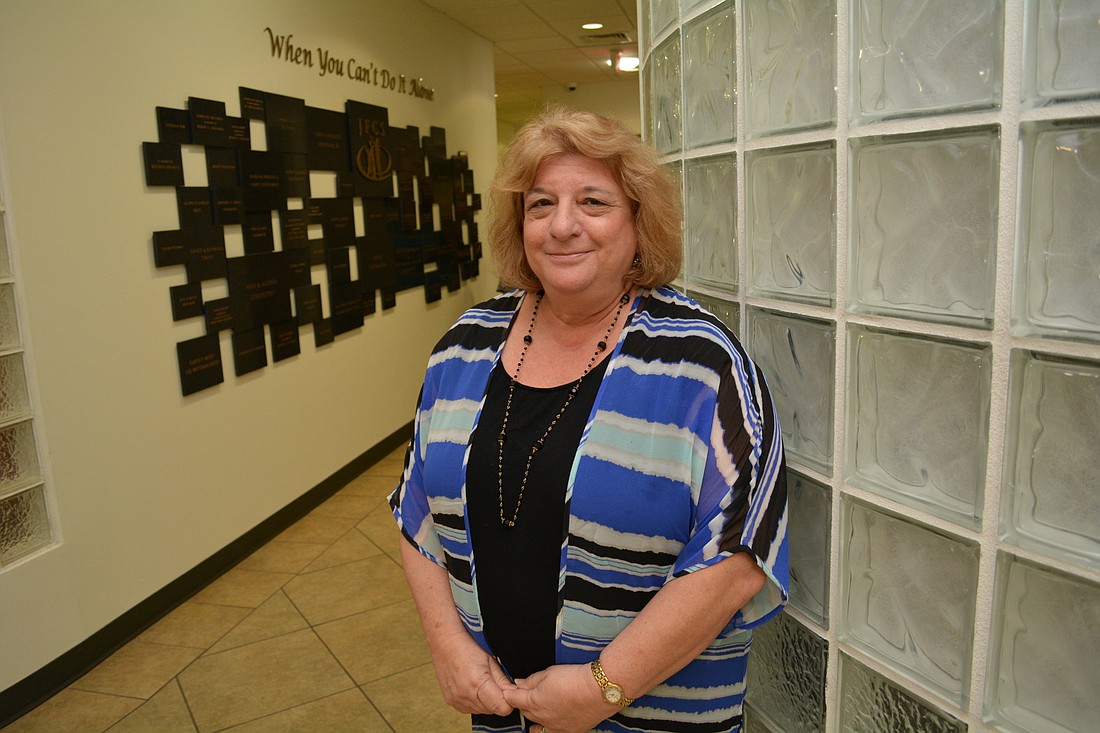- April 22, 2024
-
-
Loading

Loading

SARASOTA — Rose Chapman doesn’t have all the answers.
But between now and Oct. 1, her attention is focused on piecing together one giant puzzle — how Jewish Family & Children’s Services of the Suncoast will assume programming from the Center for Building Hope, a nonprofit providing assistance to cancer patients.
“Our vision is to have a community where everyone is cared for, safe and strong,” said Chapman, JFCS CEO and executive director. “If that’s our philosophy, then this is what we’re supposed to do. It will affect our infrastructure, our budget, our staff, our board. But the reality is everyone who hears about it says we’re doing the right thing. We’ll figure it out.”
The CBH board fired its CEO, Carl Ritter, July 31 after newspaper reports alleged he misused his role. He left the charity in dire financial shape, and in the subsequent weeks, CBH closed its Brides Against Breast Cancer operation and laid off its roughly 40 employees.
Center for Building Hope is operating classes at its Lakewood Ranch center through the end of September — or whenever it runs out of money — and JFCS plans to assume programming starting Oct. 1, or shortly thereafter. JFCS hopes to pick up most, if not all, services CBH currently offers, but Chapman isn’t sure how many her organization can accommodate just yet.
“We have to put some puzzle pieces together,” she said. “We wanted this transition to be as seamless as possible so their clients wouldn’t feel abandoned in their fight against cancer. They have enough problems in their lives.”
Right now, Chapman has a list of more than 20 “most important” programs provided by CBH’s program director, Andrea Feldmar, that includes offerings such as caregiver and patient support groups, yoga, grief support and educational classes. Chapman also hopes Feldmar can stay on with JFCS through the transition and beyond.
But, ultimately, funding will be the challenge. Although JFCS has no debt on its buildings, its resources are allocated to its 110 employees and 26 existing programs, which include homeless prevention, food pantries, military assistance and more. Chapman said she still has to determine how much money is needed to run CBH’s programming, and she hopes funding will be sufficient to keep it going through December, giving her three months to plan for next year and begin raising money from donors.
“I will put out a plea. We will reach out to the entire community because I believe everyone gets touched by cancer,” she said, adding she hopes to keep programming free for clients, but said other funding sources, such as client donations or insurance, may be considered to help finance the new services without negatively impacting clients.
Chapman also is working to determine a new name for the program, so it can be rebranded under the auspices of JFCS and avoid of any stigma resulting from CBH’s failure.
Chapman also will negotiate with CBH’s contractors and make sure they will work under JFCS, so CBH clients see minimal changes to their services. She anticipates most CBH classes will be hosted at JFCS’s main campus on Fruitville Road or at its Flanzer building on Ringling Boulevard, in Sarasota.
“Between the two buildings, we believe we have enough space,” Chapman said.
Ron Gelbman, a retired worldwide chairman with Johnson & Johnson, is spearheading changes at CBH along with retired business executive Carlos de Quesada, a CPA who wishes to remain anonymous and the organization’s board. Gelbman had hoped to save CBH, but soon realized Chapman’s offer for assuming CBH services would be a best-case scenario given its dire financial situation.
“When you don’t have a lot of cash, you have to make some of these calls quickly and keep all those options open,” he said. “I feel really good we’ve taken care of the patients by having the services available, but I don’t feel good about the fact almost 40 people have lost their jobs. I wish I could have done better — save the center and the jobs.”
And as Chapman and Feldmar coordinate logistics from the services perspective, Gelbman and the CBH board will juggle logistics of all other outstanding issues related to the center — what to do with the CBH building and how to deal with hundreds of thousands of dollars in debt, for example.
“The board will have to wrestle with the pieces and what’s the best way for the center to move forward,” Gelbman said. “It’s undetermined at this moment. The board is looking at options. Right now, our focus is still delivering services to our patients and their families and cleaning up the mountain of paperwork. Then, the board can decide exactly the issues that are still floating in the air.”
Contact Pam Eubanks at [email protected].